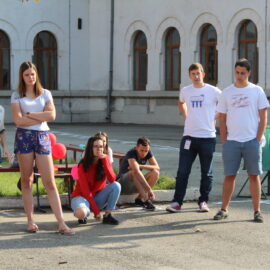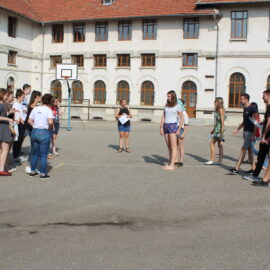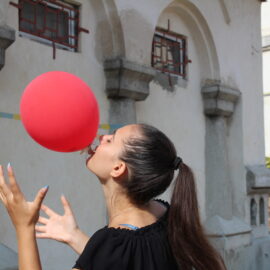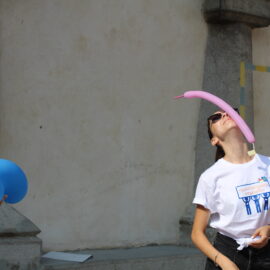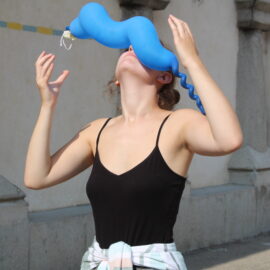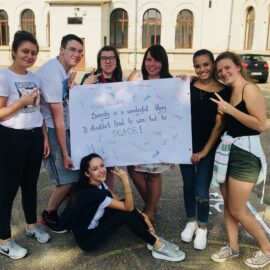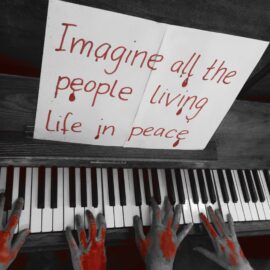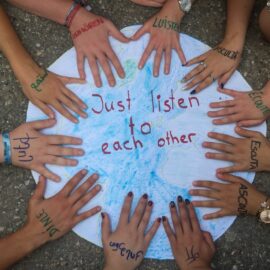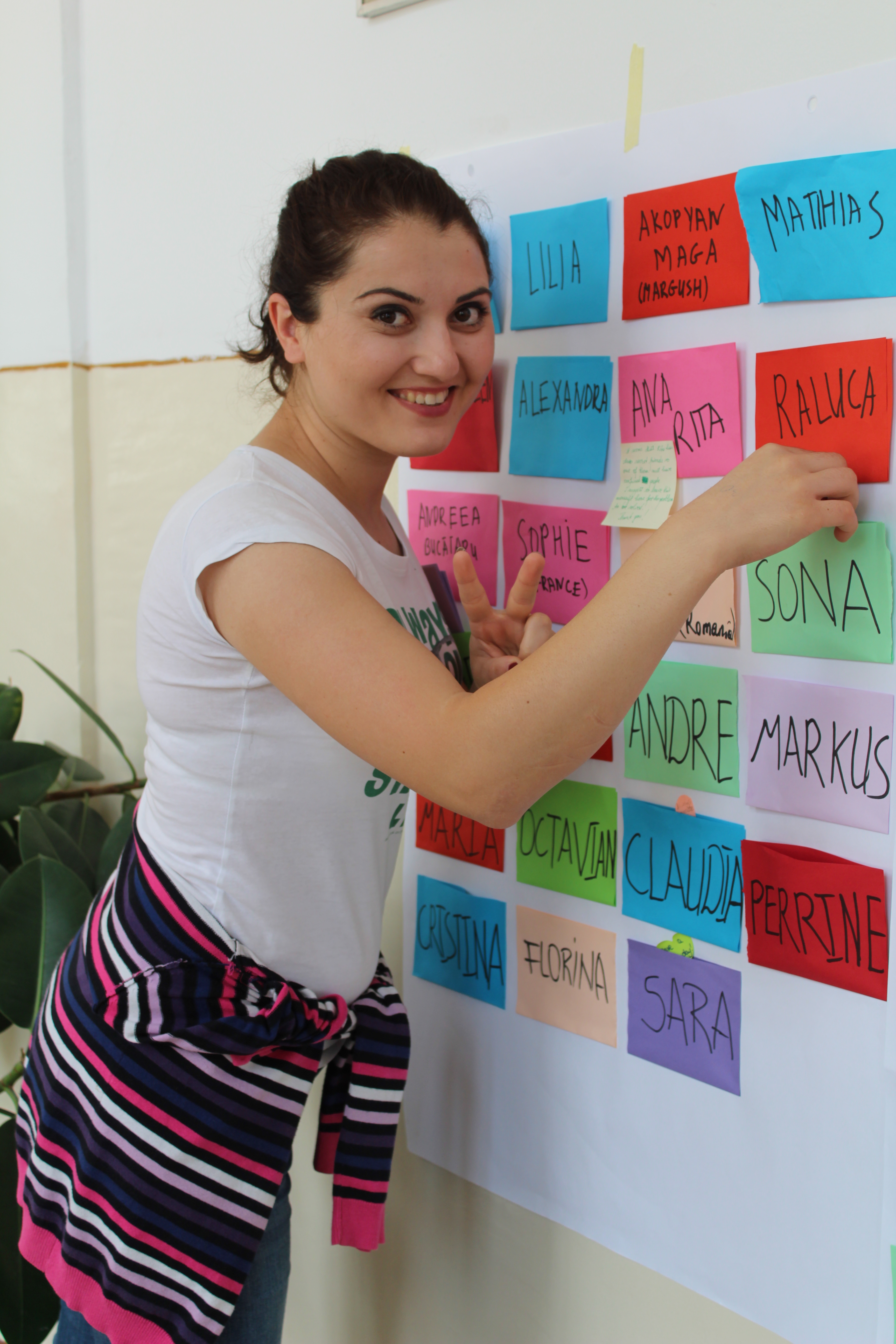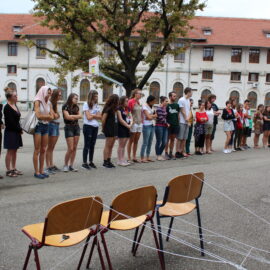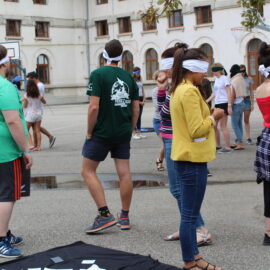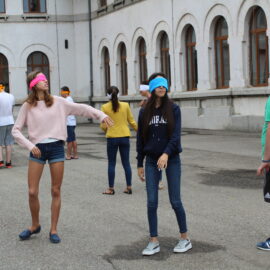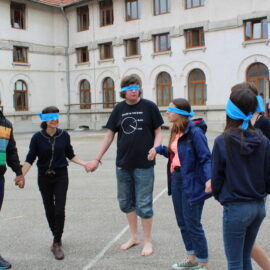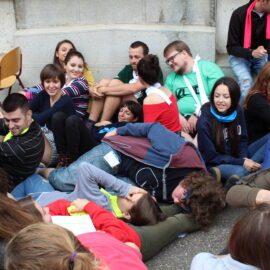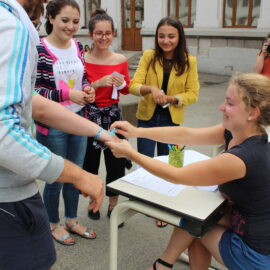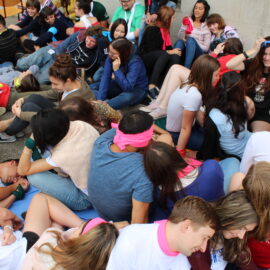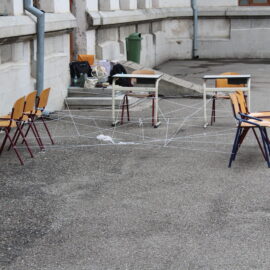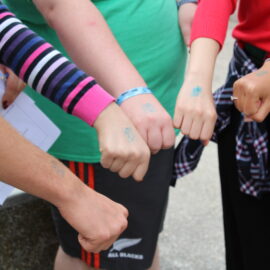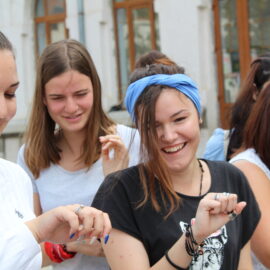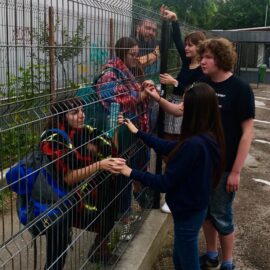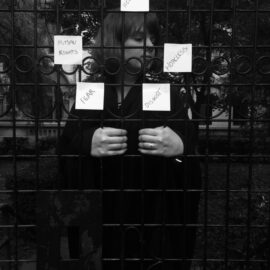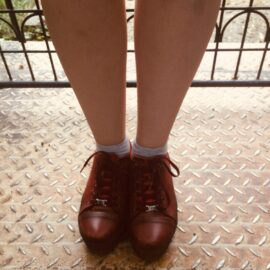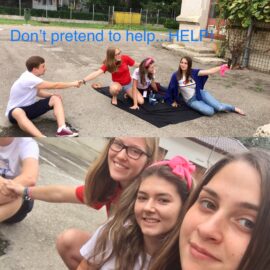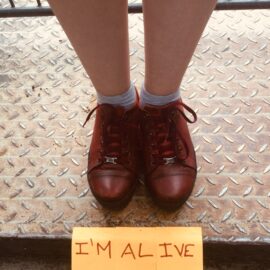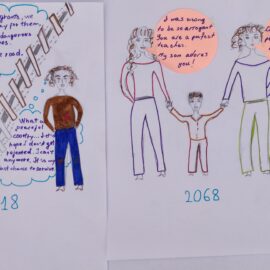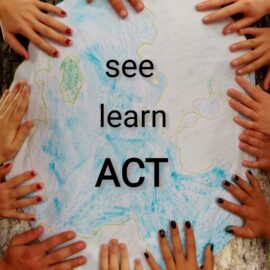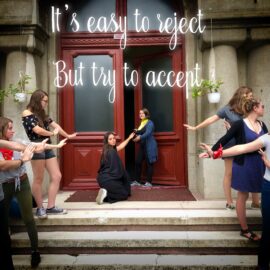On 14th March 2020, our member organisation Umbrella from Georgia organised the second local visit planned among the activities of MIJARC Europe’s annual work plan “Rock, Paper, Participation“. The work plan focuses on seeing-judging-acting on how young people get involved in the dialogue on agricultural policies and on how they take part to sustainable agricultural practices.
The ”Rock, paper, participation” annual work plan is co-funded by the European Youth Foundation of the Council of Europe and the European Union.

Umbrella gathered 13 of their young members and took them on a visit to Asureti Village and to Tetritskaro Youth Center. Firstly, they visited a farm and a greenhouses that belonged to the young farmer Gocha Apciauri, located in Asureti village. He presented his farm, the technologies he used and engaged he participants in an experiential learning activity inviting them to harvest vegetables. The discussion with the farmers focused on the challenges that he faced in his daily live as a farmer and the agricultural works.
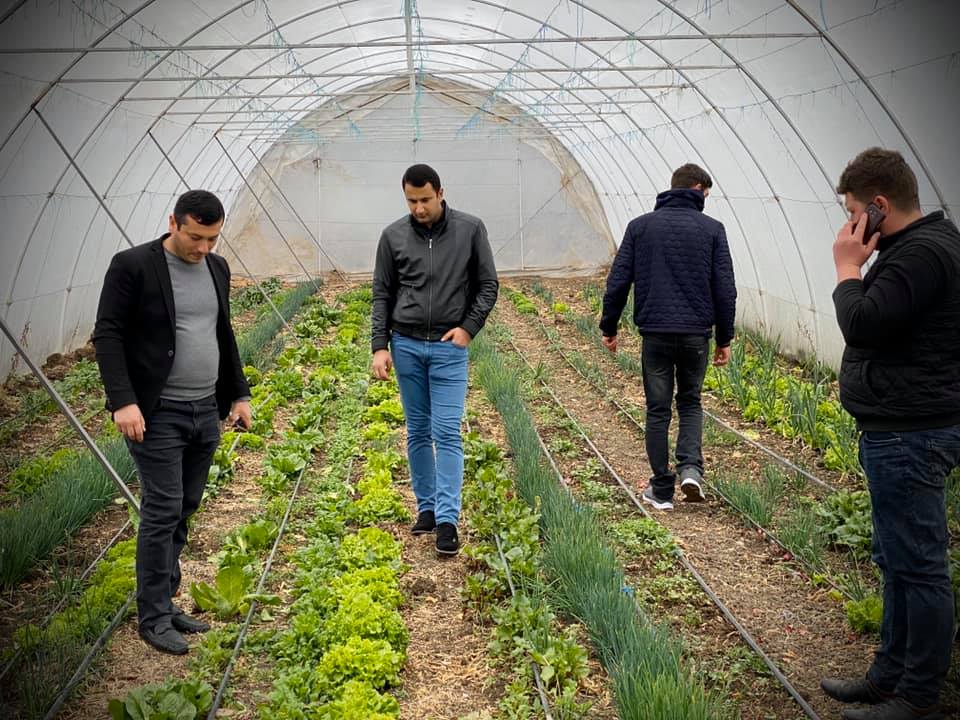
The second half of the day was spent at Tetritskaro Youth Center, where the participants explored the “ladder of Participation”, the “triangle of cooperation”, worked in groups and used non-formal learning methods to identify challenges/barriers young people face if they want to get involved in the dialogue on agricultural policies.
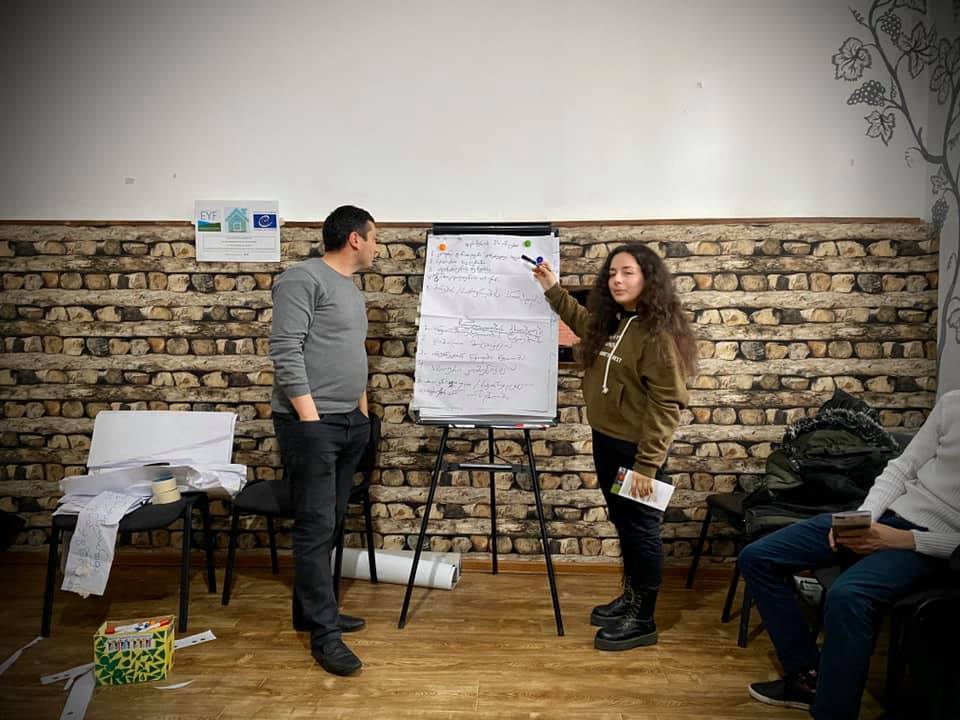
They based their work on the study on youth involvement in agriculture – the case of Georgia – published by MIJARC Europe especially for this visit and the Revised European Charter on the Participation of Young People in Local and Regional Life (the Charter)
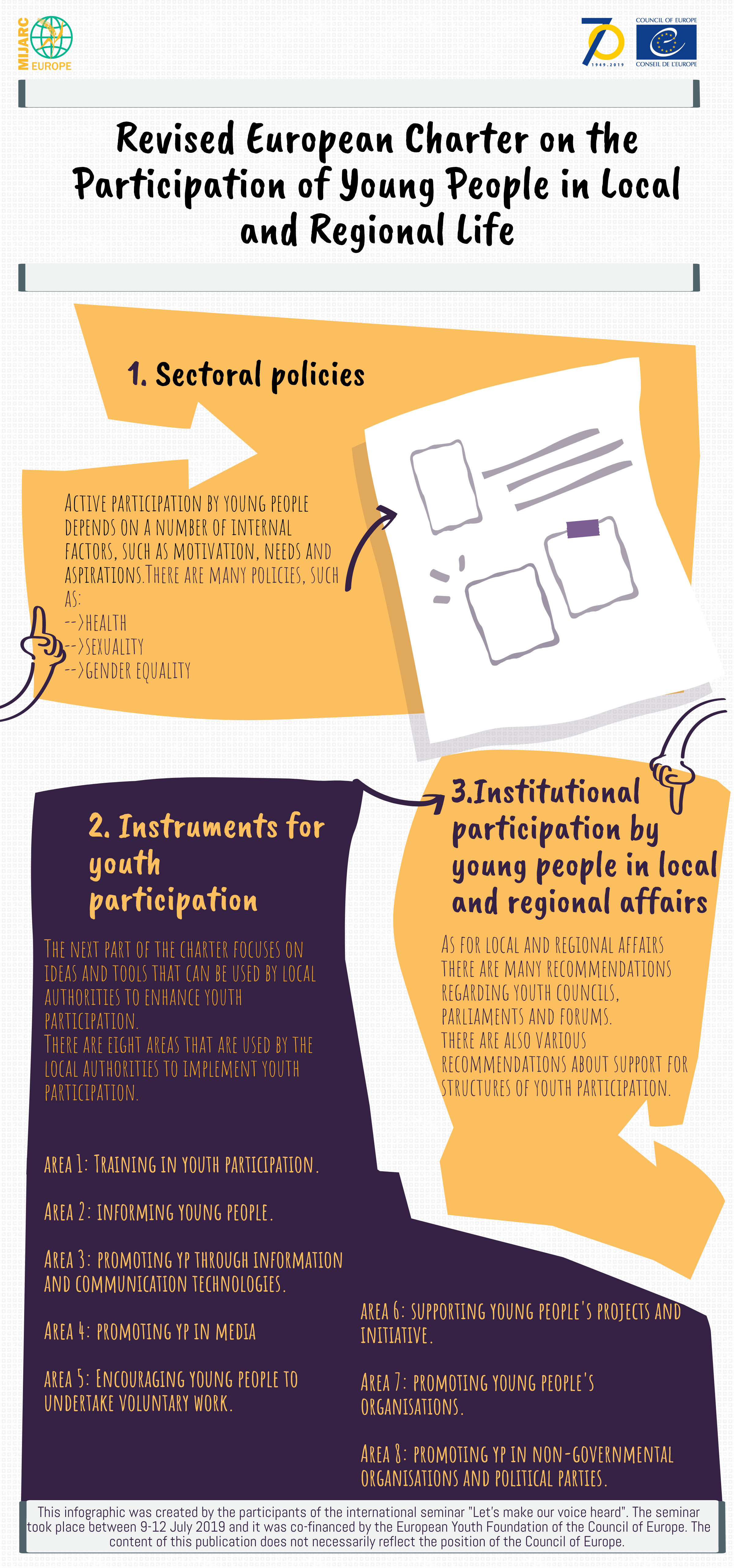
According to participants their involvement in agricultural policy at local level is extremely low. They were not aware of the possibilities and mechanisms of participation in decision-making process at local level. None of them had ever taken part in discussions on farming issue or had been invited to the local Sakrebulo (local legislative body) meetings. In addition to this, despite the fact that representatives of two local municipalities (Tetrsitskaro and Marneuli) were invited to the meeting, none of them sent representatives.
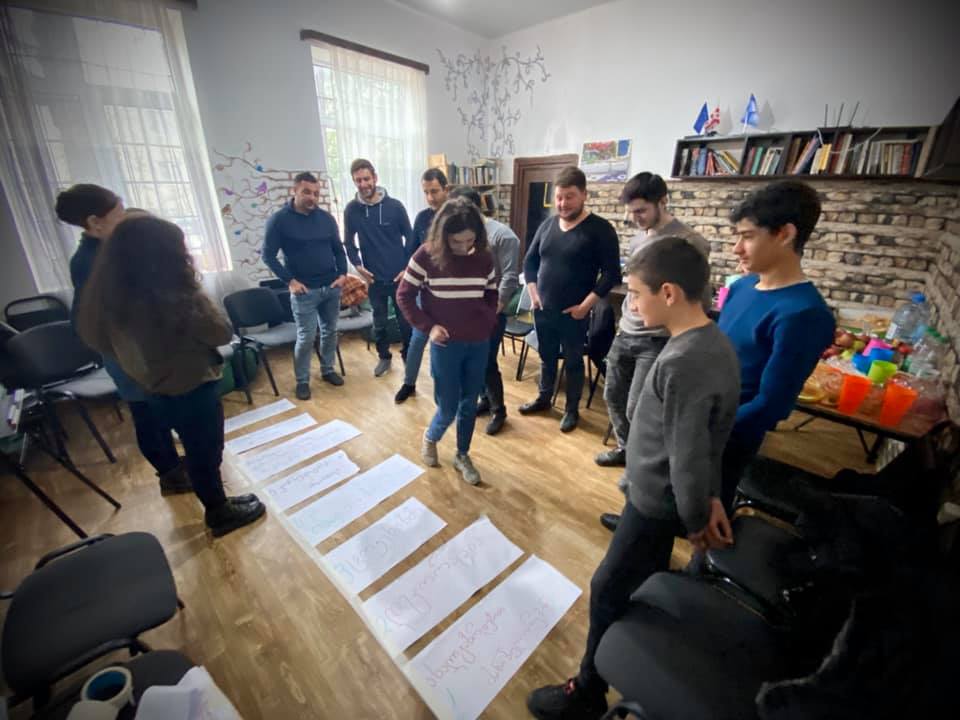
The young participants decided that the priorities they should focus on at local level should be:
- Information – access to information is the top priority as quite often the information is on websites but it is not proactively published or spread in the municipality. It also considers the accessibility to internet as it is not developed in rural area.
- Motivation – low level of motivation or nihilism among youth and non-responsive local authorities. The priority is to raise the level of motivation among young people.
- Language barrier – in the communities with ethnic minorities (Armenians, Azerbaijanis) in some cases they face language barriers as they lack of knowledge of state language. Translation of information into native languages.
- Political will – promoting (advocating) political will among local authorities and awareness about the positive sides of involvement of young farmers in agricultural policy development process.
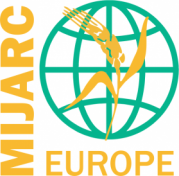
 Between
Between 